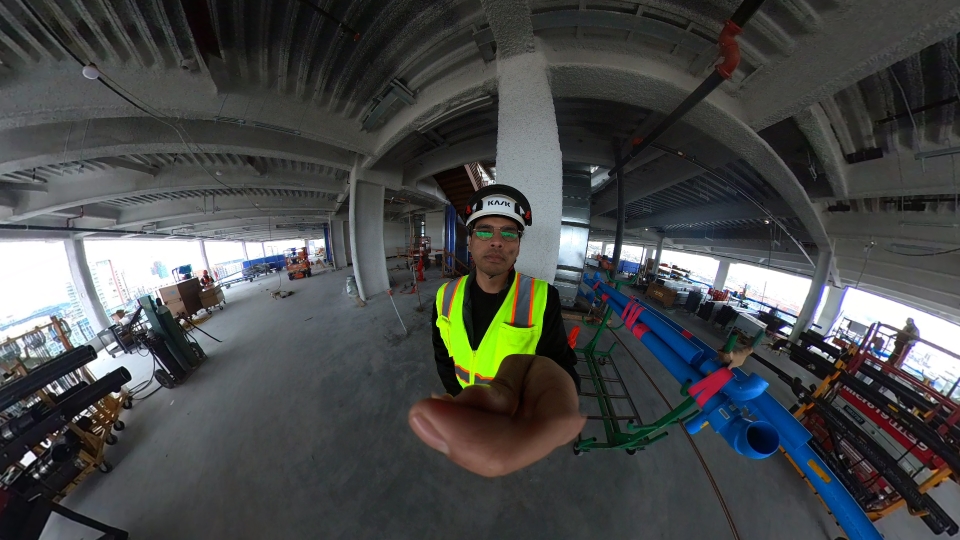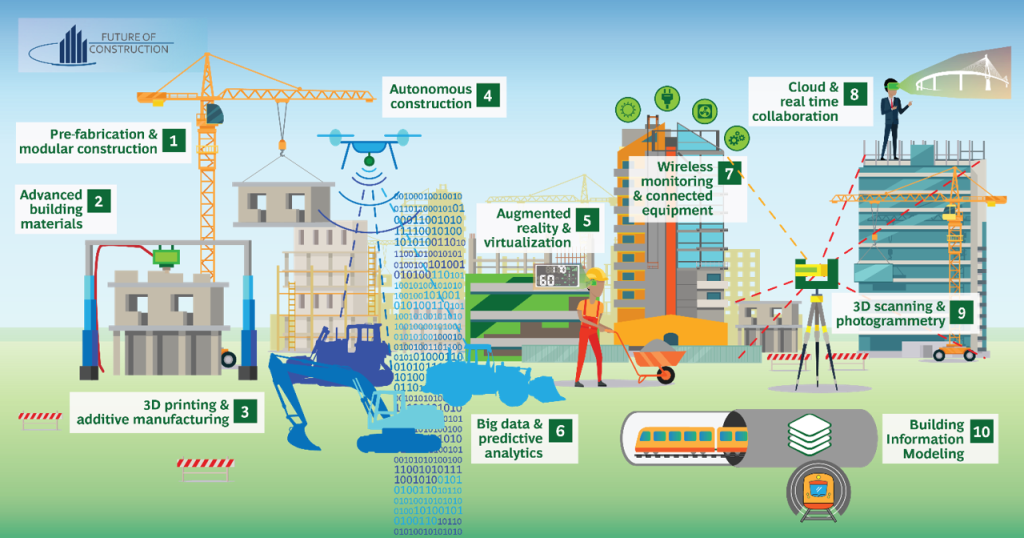Construction systems are key to creating and operating an adaptive and resilient built environment and infrastructure systems needed to sustain and enhance human life. The vital, large, and exciting field of construction is now disrupted at all levels by deep technologies including AI, robotics, embedded sensors and nano-materials. The industry is reshaping itself for example by increased use of modular and off-site production with radically new supply chains, virtualization and development of digital twins, and innovative management thinking such as Lean Construction.
UC Berkeley’s Construction Systems Program will educate you to lead tomorrow’s automation of the construction industry. You will learn to leverage these disruptions to realize the next generation of adaptable, resilient, sustainable smart buildings and infrastructure. We teach construction systems as a computational and at the same time as a management science, integrating people and technology with applications to realize state-of-the-art structural- and geotechnical designs for example, to launch you as a management professional, technologist, entrepreneur, researcher, or academic geared to drive construction industry transformation.

Our curriculum includes:
- Construction viewed as a socio-technical system including its data science-, optimization-, and simulation aspects,
- Construction viewed as a project-based production system including its organizational-, financial-, planning-, control-, legal-, and contractual aspects,
- Integration of construction with structural- and geotechnical design,
- Technology including the use of scanning, sensing, machine learning, cloud computing, automation and robotics, and Building Information Modeling (BIM) and Virtual Design and Construction (VDC),
- Large-scale systems thinking including societal-scale mobility, energy flows, and urban forms,
- The opportunity and freedom to take courses in other disciplines.
As a student in the Construction Systems Program you are encouraged to broaden your knowledge and problem-solving skills by taking courses in overlapping programs such as
- School of Information - offering the Graduate Certificate in Applied Data Science
- College of Computing, Data Science, and Society (CDSS)
- College of Environmental Design (CED)
- Mechanical Engineering
Our graduates find a wide range of employment opportunities in private industry and in the public sector, for example in tech companies, general contracting, consulting, design, building, transportation, and industrial construction firms, as well as in public- and private owner organizations, both domestically as well as internationally.
As we are located in the San Francisco Bay Area ― the center of major local, national, and international construction activity ― our Program is strongly interlinked with industry. Our class projects and research leverage the ability to go observe as well as study specific local- and international projects. We draw on examples from commercial building-, heavy civil infrastructure-, industrial-, and residential construction throughout our curriculum. We also invite industry practitioners to present guest lectures describing industry challenges and solutions.

https://www.weforum.org/agenda/2018/03/how-construction-industry-can-build-its-future/ visited 2023-08-22
2024-04-11 IDT
